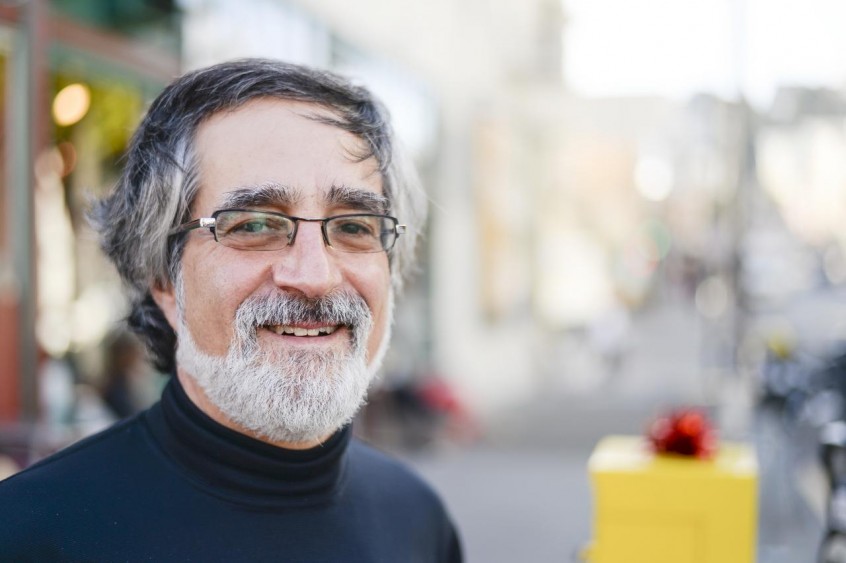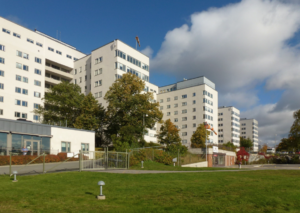Mayor–Ed Lee
As anticipated, the incumbent Mayor Ed Lee was reelected on November 3rd. The clear front- runner from the start, Mayor Lee received 55% of the vote. The rest of the votes were distributed among his opponents Francisco Herrera, Amy Farah Weiss, StuartSchuffman,KentGraham, and Reed Martin.
Sheriff—Vicki Hennessey
Former Chief Deputy Sheriff, Vicki Hennessy, and incumbent, Ross Mirkarimi, were the main competitors in the recent election for Sheriff. Hennessey, who was endorsed by high-ranking elected officials, such as Senator Dianne Feinstein, Congresswoman Jackie Speier, and Lieutenant Governor Gavin Newsom, won with 61% of the vote, beating out Mirkarimi,whosecampaignwas plagued with reminders of his 2012 domestic abuse scandal.
District Attorney— George Gascon
Incumbent District Attorney George Gascon ran unopposed.
City Attorney—Dennis Herrera
Incumbent City Attorney Dennis Herrera ran unopposed.
Supervisor, District 3—Aaron Peskin
The race for District 3 supervisor was one to watch. Former District 3 supervisor and later President of the Board of Supervisors, Aaron Peskin, known for his support of progressive measures, including the ban of alcohol at the North Beach Jazz Festival and the cancellation of the San Francisco Grand Prix – beat out Julie Christensen by 1,500 votes despite being Maroy Ed Lee’s appointee and the incumbent. Nevertheless, on Election Day, 55% of San Francisco voters declared they were ready to have Peskin back as Supervisor of District 3.
Treasurer—José Cisneros
Incumbent Treasurer José Cisneros ran unopposed.
City College Board–Alex Randolph
Incumbent Alex Randolph – who was appointed to the City College Board by Mayor Ed Lee in April of this year – beat out opponents, Tom Temprano, Wendy Aragon, and Jason Chuyuan Zheng, decisively with 48 percent of the vote. Randolph was endorsed in his campaign by politicians, such as Mayor Ed Lee, Lieutenant Governor Gavin Newson, and California State Senator Mark Leno.
Proposition A (Affordable Housing Bond)—Yes
Prop A won easily with nearly 75 percent of the vote. The measure will allow the city to put $310 million into the development and preservation of affordable housing for low to middle-income households. The funding will focus on veterans, seniors, disabled people, and working families; it will also go to other housing projects, such as the renovation of old public housing.
 Proposition B (Paid parental leave for city employees)—Yes
Proposition B (Paid parental leave for city employees)—Yes
Prop B enables both parents employed by the City to take the maximum amount of paid parental leave allowed to City employees in addition to 40 hours of sick leave.
Proposition E (Public Meeting Requirements)–No
Prop E, which lost by a margin of 30% of the vote, would have required the City to stream all City meetings on the internet, allowing the public to engage via written, video, or audio comments. Prop E would have required that those comments be played. Members of the public, commission, committee, or board members would be able to request that pertinent topics be discussed at a certain point in the agenda.
Proposition F (Short-term rentals)—No
Prop F, which was defeated in the recent election, would have restricted short-term rentals, such as those solicited by the multi-billion dollar company, Airbnb. Had Prop F been passed, homeowners would be able to rent out their homes for a maximum of 75nightsayear.Theproposition would have forced renters to pay hotel taxes and abide by city code. It would also have allowed those living within 100 feet of rentals to file private action lawsuits against their neighbors, whom they suspected of breaking the law. The measure lost with 44% of the vote.
Proposition G (Renewable energy disclosures)—No
Prop G, which won with 78% of the vote, will define “renewable, greenhouse-gas free electricity” as “electricity derived exclusively from certain renewable resources located within or adjacent to the California border or electricity derived fro Hetch Hetchy, except for electricity from other types of resources such as rooftop solar and other large hydroelectric facilities.” Prop G also requires CleanPowerSF to tell customers and potential customers how much “renewable, greenhouse-gas free electricity” they will provide and prohibits CleanPowerSF from claiming their electricity is “clean” or “green” unless it meets the parameters of “renewable greenhouse gas-free electricity.”
Proposition H (Defining clean energy)—Yes
Prop H won big with 80% of the vote. Similar to Prop G, Prop H will use the definition of “eligible renewable energy resources” when using the terms “clean energy,” “green energy,” and “renewable, Greenhouse- Gas free Energy.” Again, CleanPowerSF will be required to share with customers and potential customers the planned percentage of such energy their services will provide. Finally, Prop H makes it City policy that CleanPowerSF uses electricity generated locally when possible.
Proposition I (Suspension of market-rate development in the Mission)—No
Prop I lost with 43 percent of the vote. Prop I would have temporarily suspended the distribution of permits for certain types of development in the Mission District, giving the neighborhood time to create a Neighborhood Stabilization Plan.
Proposition J (Legacy business bond)—Yes
Prop J will enable the City to establish a Legacy Business Historic Preservation Fund, which will provide legacy businesses and owners who have leased their space for ten years or more with grants. Prop J will also amend the definition of Legacy Businesses to include those that have operated for at least 20 years, are in jeopardy of losing their business, and meet other requirements outlined in the current definition.
Proposition K (Surplus public lands)—Yes
Prop K, which won with 74% of the vote, will allow the City to build affordable housing for households with a range of incomes on surplus property.





